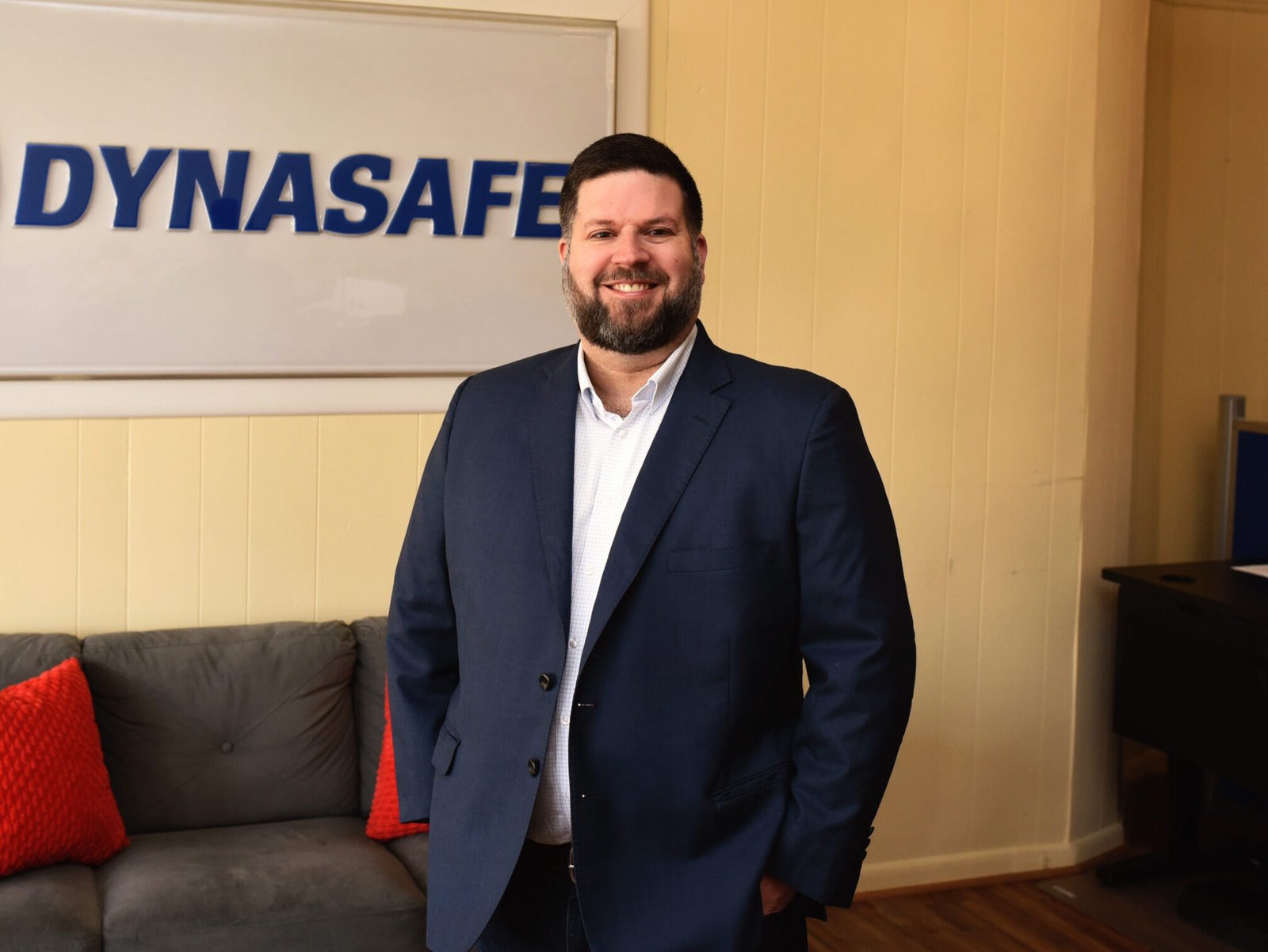I recently went one-on-one with Andrew Aertker, co-founder and CEO of PatchRx.
Adam: Thanks again for taking the time to share your advice. First things first, though, I am sure readers would love to learn more about you. How did you get here? What experiences, failures, setbacks, or challenges have been most instrumental to your growth?
Andrew: I grew up in a family of writers who had a very consistent philosophy while raising us – learn through experiences. As a result, my sibling and I became what I would call “suitcase kids”– moving every year around the world until finally settling in Denver, CO for middle and high school. Oddly enough there were never any pressures or expectations for excelling academically or in sport – again, this notion of just trying things seemed more important than anything. So from a very young age, we learned two really integral skills – how to adapt to change and how to harness the power of self-will. I took a year off before going to college to figure out what I was essentially doing with my life, and very quickly ran into a series of difficult situations: nearly kidnapped in St. Lucia, slept on park benches in the south of France, jumped between couches trying to find jobs in Spain – the list is long. But when I returned to the US, I found that these situations left me with this unfiltered confidence that I could find a solution to anything (if it doesn’t defy the physical laws of the universe, of course). Fast-forward two years into college, when Gavin [Buchanan] and I were just starting to work on this smart pill bottle cap idea, I was diagnosed with cancer out of the blue. That “I can solve anything” naivete does wonders for finding ways to mentally power through extreme scenarios. Healthy now and on the other side of it, my track record still stands – I still have a perfect record of getting through bad days or tough problems.
Adam: How did you come up with your business idea? What advice do you have for others on how to come up with great ideas?
Andrew: Gavin and I met the first week we were together in college and very quickly hit it off – neither of us really wanted to be there, and so we figured we could “build” our way out. The concept was initially conceived in our college library basement when a conversation around the opioid crisis (alongside personal dealings with non-adherence) between us lit a spark to create “a smarter pill bottle cap.” We hacked away at the school’s 3D printer for a few months, doing research, working in health systems, and writing some terrible code, and then entered a pitch competition with our tech. We placed second. For about two and a half years, Gavin and I spent thousands of hours iterating on the tech, the market, fundraising, hiring, firing – just to end up in 2021 in the middle of the pandemic on our heels with no real traction. And then Medicare released a subset of billing codes called RTM that allowed us (and our tech) to be the first medication adherence devices to have financial incentives for providers. And PatchRx took off. I guess the only advice I have on coming up with great ideas is pretty simple – it’s almost never the greatest ideas that succeed, it’s how you develop them. Idea v1 is rarely what ends up being the final product – it’s the strategic iterations and adjustments that lead to success. Being open to every new opportunity and keeping a keen eye out are among the best skills you can have.
Adam: How did you know your business idea was worth pursuing? What advice do you have on how to best test a business idea?
Andrew: Summed up: a ton of market research and a great degree of intuition. Early on we began talking with as many “healthcare people” as we could find – everyone from physicians to clinical trial researchers. When everybody, and every paper you read, says that the thing you’re trying to solve (in our case medication adherence) is a massive problem, it’s probably worth pursuing. What we underestimated was how difficult a problem it would actually be to solve – but that’s an entirely different matter. The best and truthfully only way to test an idea is to build something and put it out there. Our technology product and company have iterated, adjusted, and transformed completely as a result of market testing (and failing). But we wouldn’t be here without those trials.
Adam: What are the key steps you have taken to grow your business? What advice do you have for others on how to take their businesses to the next level?
Andrew: Growing a business from nothing is undeniably difficult, particularly when you’re doing it for the first time – I am learning new things every day still. As is the case in any startup or fast-growing company, there are inevitable ups and downs, twists and turns. Recently, alongside the many wins we have had, we’ve had to surmount some growing pains as well. When we set out to build PatchRx, the intention was to develop our tech into something that had MTP (Massive Transformative Purpose) – to build something that had the ability to impact every patient taking medication. But quality is critical, particularly in our space. Continuing to innovate and care for every single step and patient along the way not only allows us to build effectively and efficiently but with a meaningful impact on individuals. As we scale, there are some slight shifts in our approach that make growing a bit easier – but all businesses encounter hurdles, and the adjustments contribute to delivering a white-glove experience to customers.
Adam: What are your best sales and marketing tips?
Andrew: One of the most effective strategies in sales and marketing is to provide customers with a quick and tangible return on investment (ROI). Demonstrating the immediate and visible benefits of your product or service is a powerful way to capture your audience’s attention and drive conversions.
Adam: In your experience, what are the defining qualities of an effective leader? How can leaders and aspiring leaders take their leadership skills to the next level?
Andrew: Leadership comes in so many different forms and it’s something that you can improve at your entire life. But it takes a lot of work. Self-awareness is the first step. I am strongly introverted, and what comes as a result of that is not the compelling charisma that can light up a whole room, but being a really good listener. Harnessing what is innate to you, rather than following what the perception of leadership is in the media or the public eye, is the most effective way to become a good leader. If you aren’t aware of who you are and how your actions, words, or decisions affect others and the world around you, it’s nearly impossible to be a great leader.
Adam: What is your best advice on building, leading, and managing teams?
Andrew: Building and leading teams is an intricate art (particularly for us introverts). It’s taken years to get to a place where I feel comfortable, and I think I’m still just hitting the tip of the iceberg. My only piece of advice, because honestly I’m really still learning, is to hire brilliant people to support you and grow with you and your company. Hire exceptional people aligned with your vision and values, foster open communication, and encourage autonomy. Understand your team’s strengths, delegate effectively, and create an inclusive environment. It’s about empowering your team to contribute collectively to the organization’s success.
Adam: What are your three best tips applicable to entrepreneurs, executives, and civic leaders?
Andrew: Trust your intuition and prepare adequately. So often, particularly without experience in a certain situation or field (healthcare for us), it’s tough to trust your instincts. But as long as you are doing the work and preparing in the way that you should, your intuition is probably right.
Find ways to create space between stimuli and your responses. This is much easier said than done, but the moment you can find a way to build a barrier between your reaction and what you’re reacting to, you begin to lead more decisions with logic rather than emotion. And logic, almost always, leads to better outcomes.
At the same time, balance logic and emotion: Striking the right balance between logic and emotion is crucial. While logic is typically the foundation for well-thought-out decisions, acknowledging and understanding the emotional aspect is important. Emotions can provide valuable insights into human reactions and motivations, guiding your approach to decision-making and leadership.
Adam: What is the single best piece of advice you have ever received?
Andrew: While we’ve received a wealth of advice, and I’m sure we’ve received a ton of good advice, for some reason the bad advice tends to stick out more. So I’ll go in that direction here. What stands out is a perspective that challenges a common startup platitude: “Fail fast.” I never quite understood the appeal. Personally, I’ve always leaned towards “doing it right the first time and never settling for less.” This mindset advocates proactive and meticulous planning, focusing on executing correctly from the outset. While failing fast intentionally has its merits, I’ve found that investing the time and effort to get it right initially often leads to more consistent and successful outcomes in the long run. This perspective has shaped our approach at PatchRx, emphasizing a meticulous and thorough approach to our initiatives.









